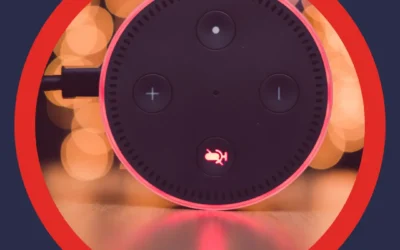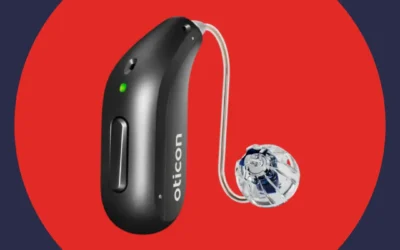Maximize Your Hearing, Minimize Your Costs: Buying Hearing Aids Without Insurance
Buying hearing aids without insurance can be more affordable than you think. Unlike buying a car or prescription medications, you don’t need hearing insurance to afford hearing aids, even prescription ones. In fact, some hearing insurance plans don’t even cover hearing aids anyway.
Approximately 28.8 million adults in the US could benefit from hearing aids, according to the National Institute on Deafness and Other Communication Disorders. Unfortunately, only 16% of people aged 20 to 69 who need hearing aids actually use them. Untreated hearing loss is linked to depression, cognitive decline, and chronic illnesses like dementia.
The good news is that hearing aids can significantly improve your communication, safety, quality of life, cognitive function, and emotional well-being. With so many benefits, it’s essential to explore how you can obtain hearing aids without relying on insurance.
Understanding Your Options: Insurance vs. Self-Pay
Should I Pay Extra for Hearing Insurance?
Considering hearing-specific insurance plans involves weighing the pros and cons. Here’s a brief overview:
Pros:
- Reduced Out-of-Pocket Costs: Insurance can lower the upfront costs of hearing aids.
- Coverage for Repairs and Maintenance: Some plans include coverage for repairs and adjustments.
Cons:
- Limited Coverage: Plans might cover only part of the cost, have high deductibles, or limit coverage to specific models.
- Premiums: Monthly premiums might not be cost-effective based on your needs.
Factors to Consider:
- Severity of Hearing Loss: Mild hearing loss might not justify the cost of premiums over time.
- Overall Health Insurance: Your existing plan might offer some hearing aid coverage.
- Budget: Consider deductibles, co-pays, and ongoing premiums to see if they fit your budget.
Alternative Options:
Flexible Spending Accounts (FSAs) or Health Savings Accounts (HSAs): Use pre-tax dollars to pay for hearing aids, reducing overall costs.
Hearing insurance can be beneficial, but you must evaluate its costs and limitations against your needs. Explore your current health insurance plan, consider FSAs or HSAs, and compare costs before deciding on additional hearing insurance. According to ValuePenguin, most Medicare Advantage (Part C) plans now cover hearing aids and exams. However, people with these plans still pay 79% of the hearing aid costs or an average of about $1,820 per aid out of pocket. And with insurance, you’re often limited in what brand or style of hearing aids you can choose. So, it may make more sense to just pay for your selected devices yourself.
Learn more about hearing aid insurance.

Can I Buy My Own Hearing Aid?
Yes, you can purchase hearing aids directly from qualified providers. Here’s what you need to know:
You can buy hearing aids from providers like American Hearing + Audiology, offering a range of options to fit different needs and budgets.
Understanding Hearing Aid Options:
Hearing aids come in various types, each affecting the cost:
Basic Hearing Aids:
- Provide sound amplification.
- More affordable.
- Suitable for mild hearing loss.
Advanced Hearing Aids:
- Include noise reduction technology, directional microphones, and Bluetooth connectivity.
- Offer programmable settings for a personalized experience.
- Higher price point due to advanced features.
By understanding your options and needs, you can make an informed decision when buying hearing aids without insurance.
The Value of a Qualified Hearing Provider
Is it Better to Go to an Audiologist for Hearing Aids?
While you can purchase hearing aids directly, consulting a licensed hearing care provider is highly recommended. Here’s why:
Advantages of Consulting a Qualified Provider:
- Comprehensive Hearing Evaluation: Audiologists conduct thorough assessments to determine the severity and type of your hearing loss.
- Understanding Your Hearing Loss: Knowing the cause of your hearing issues helps in selecting the right hearing aid
- Personalized Recommendations: They recommend the most suitable hearing aids for your situation.
- Custom Programming: Audiologists program the hearing aids to match your specific hearing profile.
- Ongoing Support: They provide continuous adjustments and support to ensure optimal performance.
- Tailored Settings: Hearing aids must be set to meet your unique needs, which vary from person to person.
- Ensuring Effectiveness: Hearing aids bought online without a complete hearing test may not meet your needs.
- Access to Specialized Software: Audiologists use specific software for programming hearing aids, which may not be available with online purchases.
- Support During Adjustment: Getting used to hearing aids can be challenging. Hearing care specialists provide follow-up visits and support to help you adapt.
Maximizing Your Investment
Investing in a hearing aid is more than just amplifying sounds. It’s about improving your quality of life with a device tailored to your needs. An audiologist ensures you get the most out of your hearing aids, making them a valuable partner in your hearing health journey.

Strategies for Managing Costs Without Insurance
Hearing aids can be a significant investment, but you have options for managing costs when buying hearing aids without insurance. Here are some strategies to consider:
Exploring Financial Options:
- Hearing Aid Financing: Many audiologists and manufacturers offer financing plans, allowing you to make manageable monthly payments.
- Health Savings Accounts (HSAs) and Flexible Spending Accounts (FSAs): You can use pre-tax dollars from HSAs or FSAs to pay for hearing aids, reducing your overall cost.
- Healthcare Credit Cards: Consider a card like CareCredit, which offers zero or low-interest financing options for health-related expenses, including hearing aids.
Manufacturer Discounts:
- Special Promotions: Look for discounts or special promotions from various hearing aid brands.
- Price Match Promise: American Hearing + Audiology offers a price-match promise, ensuring you get the best price for your hearing aids. They also provide 12-month, 0% financing to make hearing aids more affordable.
Additional Cost-Saving Tips:
- Focus on Needs, Not Features: Prioritize functionalities directly addressing your hearing loss. Avoid unnecessary features that increase the cost.
- Consider a Single Hearing Aid: If your hearing loss affects only one ear, a single hearing aid may suffice.
While managing costs is essential, prioritize quality and expertise. Consulting a licensed hearing care provider ensures a proper evaluation and guidance in selecting the most suitable hearing aid. This approach guarantees the best results from your investment, providing you with the optimal hearing solution tailored to your needs.

Find the Best Solution for You
No matter how you handle the hearing insurance question, prioritizing your hearing health is essential. Managing costs is possible with the right strategies, but quality and expertise should be maintained. Consulting a licensed hearing care provider ensures a personalized assessment, helping you find the most suitable and cost-effective hearing aid solution.
Don’t let the cost of hearing aids prevent you from getting the assistance you need. Schedule a consultation with a qualified hearing care provider at American Hearing + Audiology. Discuss your hearing needs and explore the best options for you. Prioritize your hearing health today for a better quality of life tomorrow.



